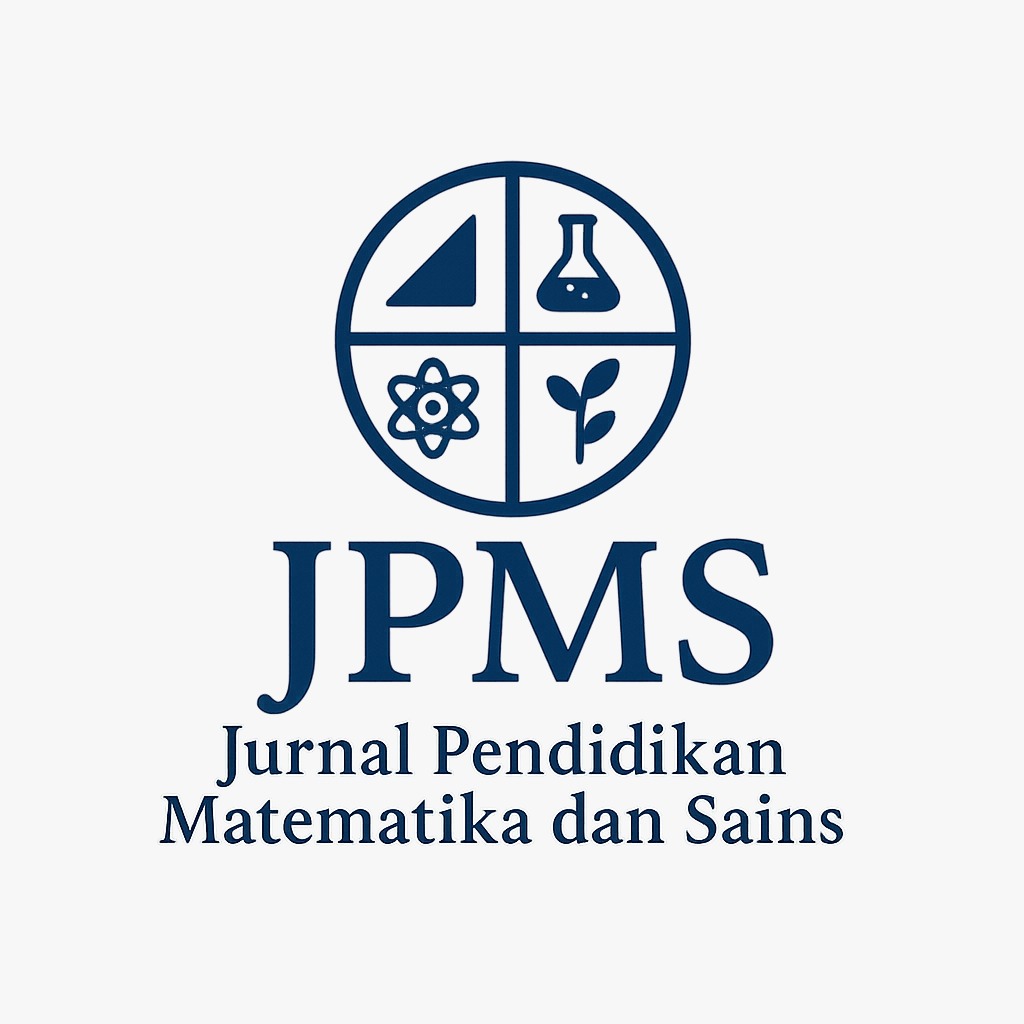Field trips (Outdoor Learning) untuk Melatih Berpikir Kritis dan Peduli Lingkungan pada Materi Perubahan Lingkungan: Literature Review
DOI:
https://doi.org/10.21831/jpms.v12i1.70479Abstract
Abstrak
Perubahan lingkungan merupakan masalah krusial pada dekade terakhir ini dan berdampak negatif bagi kehidupan. Pendidikan menjadi hal penting yang memiliki hubungan erat dengan implementasi pembelajaran mengenai perubahan iklim. Field trips (karyawisata) dipandang sebagai salah satu metode pembelajaran luar ruangan (outdoor learning) yang sesuai untuk mempelajari berbagai masalah perubahan lingkungan. Pada artikel dengan metode studi literatur ini dibahas tentang potensi dan manfaat field trips untuk melatih kemampuan berpikir kritis dan membangun karakter peduli lingkungan. Ada dua bentuk field trips yaitu real field trips dan virtual field trips. Berdasarkan hasil penelitian, diketahui bahwa field trips dapat meningkatkan kecerdasan naturalistik, pengetahuan, dan sikap siswa terhadap lingkungan. Namun ada beberapa hambatan dalam pelaksanaan field trips seperti efikasi guru yang rendah, biaya, faktor keselamatan dan pengawasan, dan keterbatasan waktu. Pada pelaksanaannya, field trips memerlukan perencanaan yang terstruktur dengan baik dan disesuaikan dengan kebutuhan dan karakteristik pesertanya.
Kata Kunci: perubahan lingkungan, pembelajaran, kemampuan berpikir kritis, peduli lingkungan
References
DAFTAR PUSTAKA
Adisendjaja, et al. (2019). The Influence of Field trips on Junior High School Students' Naturalistic Intelligence and Problem-Solving Skills in Ecosystem Subject. Jurnal Pendidikan IPA Indonesia, 8 (3), https://doi.10.15294/jpii.v8i3.19532.
Amahmid, Omar, et al. (2018). Water Education in School Curricula: Impact on Children Knowledge, Attitudes and Behaviours Towards Water Use. International Research in Geographical and Environmental Education. https://doi.org/10.1080/10382046.2018.1513446.
Barrable, A., & Lakin, L. (2020). Nature Relatedness in student teachers, perceived competence and willingness to teach outdoors: An empirical study. Journal of Adventure Education and Outdoor Learning, 20 (3), 189–201.
Dopko, Raelyne L. (2019). The Psychological and Social Benefits of a Nature Experience for Children: A Preliminary Investigation. Journal of Environmental Psychology, Volume 63, p.134-138. Diakses dari laman https://www.sciencedirect.com/science/article/pii/S0272494418307102.
Ejeh, G.U., et al. (2021). Effects of Field trips and Discovery Methods on Senior Secondary School Students' Retention in Biology in Benue State, Nigeria. Village Math Educational Review (VER), 2(1), 54-77.https://ngsme.villagemath.net/journals/ver/v2i1/ejeh-adejoh-ochu-egbe-okpenge.
Fitriani, Apriza, et al. (2020). PBLPOE: A Learning Model to Enhance Students' Critical Thinking Skills and Scientific Attitudes. International Journal of Instruction, International Journal of Instruction, 13(2), 89-106. https://doi.org/10.29333/iji.2020.1327a.
Kuthe, Alina, et al. (2019). How many young generations are there? – A typology of teenagers' climate change awareness in Germany and Austria. The Journal of Environmental Education. https://doi.org/10.1080/00958964.2019.1598927
Kuthe, Alina, et al. (2019). Strengthening their climate change literacy: A case study addressing the weaknesses in young people's climate change awareness. Applied Environmental Education & Communication. https://doi.org/10.1080/1533015X.2019.1597661.
Makransky, Guido & Mayer, Richard E. (2022). Benefits of Taking a Virtual Field trips in Immersive Virtual Reality: Evidence for the Immersion Principle in Multimedia Learning. Educational Psychology Review. https://doi.org/10.1007/s10648-022-09675-4.
Mead, Chris, et al. (2019). Immersive, interactive virtual field trips promote science learning. Journal of Geoscience Education. https:// doi.org/10.1080/10899995.2019.1565285.
Mongar, Kishore. (2022). Teachers' preparedness to teach environmental science in Bhutan. EURASIA Journal of Mathematics, Science and Technology Education, 18(10). https://doi.org/10.29333/ejmste/12454.
Mustofa, A. 2010. Kamus Lingkungan. Jakarta:
PT Rineka Cipta.
Nazir, Mohamad. (1998). Metode Penelitian. Jakarta: Ghalia Indonesia.
Ordon, Kira-Joline, et al. (2021). Biology student teachers' interest and self-efficacy in planning and conducting field trips after participation in a university course. Environmental Education Research, Volume 27 (1), 1-22. https://doi.org/10.1080/13504622.2020.1849565.
Petersen, Gustav B, et al. (2020). The virtual field trips: Investigating how to optimize immersive virtual learning in climate change education. British Journal of Educational Technology. doi:10.1111/bjet.12991.
Rebar, B. M., and L. G. Enochs. (2010). "Integrating Environmental Education Field trips Pedagogy into Science Teacher Preparation." In The Inclusion of Environmental Education in Science Teacher Education, edited by A. Bodzin., B. Shiner Klein, S. Weaver, Dordrecht: Springer. 10.1007/978-90-481-9222-9_8.
Sjí¶blom, Pia, et al. (2023). Student teachers' views on outdoor education as a teaching method-two cases from Finland and Norway. Journal of Adventure Education and Outdoor Learning, 23(3), 286-300. https://doi.org/10.1080/14729679.2021.2011338.
Surbakti, et al. (2022). Media Pembelajaran Interaktif Menggunakan Aplikasi Plantnet Berbantuan Buku Saku Digital Sebagai Inovasi Pembelajaran. BIODIK: Jurnal Ilmiah Pendidikan Biologi, 8(4), 91-101. https: 10.22437/bio.v8i4.19106.
Trott, Charlie D. (2019). Children's constructive climate change engagement: Empowering awareness, agency, and action, Environmental Education Research. https://doi.org/10.1080/13504622.2019.1675594.
Uzel, Nurcan. (2020). Opinions of Prospective Biology Teachers about "Outdoor Learning Environments": The Case of Museum Visit and Scientific Field trips. Participatory Educational Research, Vol. 7(2), pp. 115-134. http://dx.doi.org/10.17275/per.20.23.7.2.
Yuh-Yuh Li & Shu-Chiu Liu (2021): Examining Taiwanese students' views on climate change and the teaching of climate change in the context of higher education. Research in Science &Technological Education. https://doi.org/10.1080/02635143.2020.1830268.
Zhao, Jiayan, et al. (2020). Learning in the Field: Comparison of Desktop, Immersive Virtual Reality, and Actual Field trips for Place-Based STEM Education. IEEE Conference on Virtual Reality and 3D User Interfaces (VR). DOI 10.1109/VR46266.2020.00114.
Downloads
Published
How to Cite
Issue
Section
Citation Check
License
Jurnal Pendidikan Matematika dan Sains allows readers to read, download, copy, distribute, print, search, or link to its articles' full texts and allows readers to use them for any other lawful purpose. The journal allows the author(s) to hold the copyright without restrictions. Finally, the journal allows the author(s) to retain publishing rights without restrictions
- Authors are allowed to archive their submitted article in an open access repository
- Authors are allowed to archive the final published article in an open access repository with an acknowledgment of its initial publication in this journal

This work is licensed under a Creative Commons Attribution-ShareAlike 4.0 Generic License.





